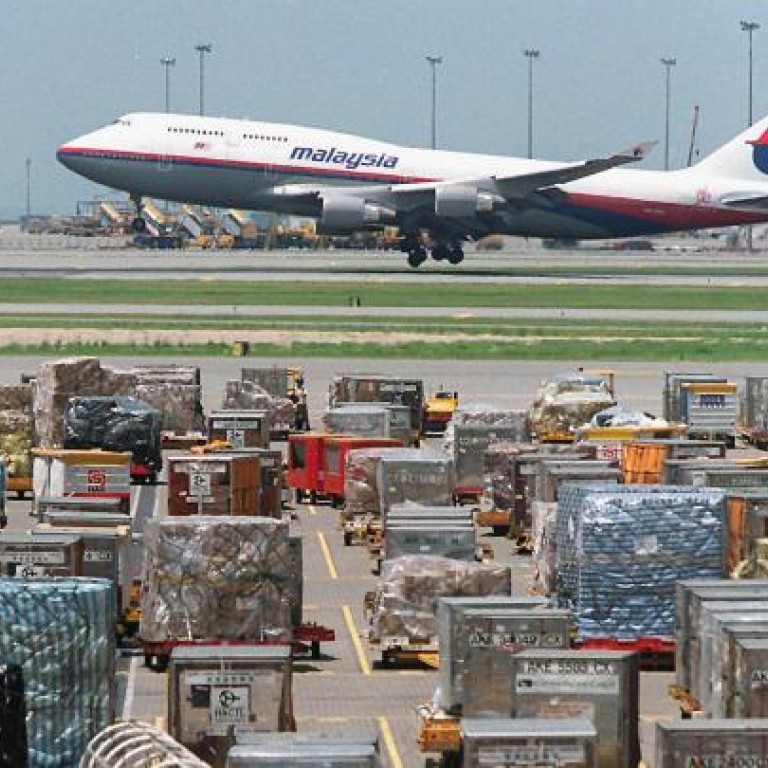
Tighter US security measures cause little impact on air cargo industry
Freight forwarders say operations still running smoothly despite measures requiring advance screening of air cargo introduced last month
Tougher security measures introduced last month for some US-bound cargo at Hong Kong International Airport have had little impact on airfreight operations so far, industry experts said.

Dr Paul Tsui Hon-yan, the chairman of the Hong Kong Association of Freight Forwarding & Logistics, said cargo operations at Cathay Pacific Airways had been running smoothly since the new measures were initiated.
Mark Whitehead, the managing director of Hong Kong Air Cargo Terminals Ltd, the largest freight handler at the airport, said: "Compliance with the new regulations has gone smoothly, and the situation is fully under control."
Under the programme, called air cargo advance screening by US authorities, details about the shipper, consignee and cargo have to be lodged with the Transportation Security Administration at US Customs and Border Protection before cargo is loaded on aircraft. Law enforcement officials will then give permission to load, or decide that cargo should be X-rayed or stopped from being loaded pending further inquiries.
Hactl said the pilot scheme, which became mandatory from December 12 and covers cargo flown in passenger aircraft, was absorbing 25 per cent of its 500 tonnes per day X-ray screening capability. But the US authorities plan to extend the advance screening pilot to cover cargo transported on freighter aircraft.
Whitehead said: "Should the TSA requirement eventually be expanded to include cargo carried on freighters, that would certainly involve greater volumes and place more pressure on the airport's air cargo industry.
"Hactl is already attuned to this possibility and will be expanding its screening capability in anticipation."
Tsui expects advance screening for US cargo to be fully implemented by the middle of next year. This is the time tougher European airfreight rules are also due to come into force.
Under European Union regulation 859, all air cargo shippers and forwarders will have to be independently validated. There are already concerns in Hong Kong about whether the validation process will be in successful operation, especially given the high volume of cargo coming from the southern mainland for shipment out of Hong Kong's airport.
Any suspect cargo to Europe will have to be X-rayed before being loaded on aircraft. Tsui said the combination of the US and European measures could lead to "a tremendous increase" in the total volume of airfreight requiring scanning. The airport handles about four million tonnes of cargo a year, and the US and Europe are major markets.
Nick Rhodes, Cathay's cargo director, said: "EU859 presents more of a Hong Kong-wide challenge, as it includes a requirement that known consignors should be independently validated, which is not presently the case under Hong Kong's regulated-agent regime."
Rhodes said the Civil Aviation Department "has put forward a proposal, but it has to be endorsed by all parties in Hong Kong. There are plenty of principles still to argue."
